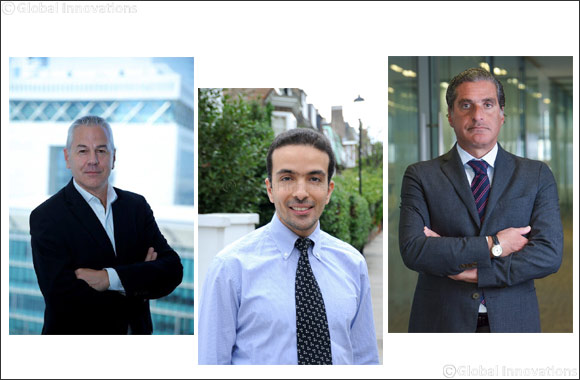- Demand for gas in the GCC is growing at a compounded annual rate of 5% from 2010 to 2017
- Governments must start making hard decisions about how best to use gas amid competing demands
- Reallocating just 10% of current production levels could increase the region’s GDP and foreign earnings by up to US$10 billion a year, or support the creation of 100,000 jobs
- Strategy& outlines three areas to capture benefits and unlock significant value
Dubai, UAE, 29 April 2019: Gulf Cooperation Council (GCC) governments could generate US$10 billion yearly in additional GDP and foreign earnings, or support the creation of 100,000 jobs, by applying commercial principles to the management of their gas portfolios, according to a recent report conducted by Strategy&, part of the PwC network. GCC countries have long benefited from an abundance of cheap gas that exceeded their needs. However, demand for this finite resource is growing, meaning GCC countries must start making hard decisions about how best to use it.
The report also finds that a modest increase in the gas price of just US$0.5 per million British thermal units (mmBtu) would add more than $6 billion per year to GCC government coffers.
David Branson, executive advisor with Strategy& Middle East, said: “The days of abundant cheap gas in the GCC are over. GCC governments now need to take a more strategic approach to managing the gas sector so that they use their gas resources more efficiently. The way forward is for GCC governments to apply commercial principles to the management of their gas portfolios to drive GDP growth and create employment.”
The Strategy& Middle East report outlines three key areas where GCC countries must take action to capture the benefits and unlock significant value in the gas sector:
- Allocate gas to create socioeconomic value. As the balance between supply and demand changes, GCC countries need to create more coherent, proactive strategies that allocate gas to end-use sectors based on their relative contribution to the country’s socioeconomic targets.
“Conventional wisdom among governments is that the greatest economic benefit comes from providing gas to industry (as a feedstock for petrochemicals, which can include fertilizers and methanol, and as fuel for energy-intensive industries such as aluminum and cement). However, using gas to ensure a cheap and reliable source of power in the country can lead to a larger payoff because it supports economic diversification and the development of the services sector”, added Dr. Shihab Elborai, partner with Strategy& Middle East.
2) Price gas to reflect its true value. A significant problem for the GCC is that overall gas pricing in these countries is opaque and prices remain artificially low by international standards. Growing gas demand and increased fiscal pressure on governments are making the issue more urgent. Rather than consider gas operations as cost centers linked to oil production, GCC governments must treat them as separate, profit-generating entities, with gas operations and wholesale gas prices that reflect the true value of gas.
One approach to do this is ‘cost plus pricing’, which factors in all costs needed to deliver gas to an end-user, including supply and transportation costs, plus a government margin. Usually, cost-plus pricing is applied to gas destined for domestic consumption. A second approach is ‘net-back pricing’, which indexes gas prices to the price of the end-products that use gas as a raw material. This approach ensures that governments accurately capture the value of gas, rather than allowing a manufacturer to benefit from artificially low prices. Net-back pricing is commonly used for gas that is exported.
3) Implement structural reforms. GCC governments must ensure that the right market structure and institutions are in place to support more strategic gas allocation and accurate pricing. They could create a gas aggregation company, for example, to coordinate gas sales and purchase agreements. This would lead to greater transparency, higher government revenue and margins, and lower risk.
An independent regulator could also be created, ensuring gas companies operate fairly and provide equal access and treatment to all sector participants. The regulator could also advise policymakers, conduct due diligence on all market participants, resolve disputes, and increase energy efficiency.
“To successfully manage their gas portfolios, GCC governments must develop a comprehensive strategy to allocate gas among end-users, and price it to reflect its true value. These measures represent a large step forward in managing national gas assets on commercial principles, and would allow countries to start incorporating the benefits of fully competitive gas-hub pricing seen in developed markets. The country that moves first to embrace commercial principles will become the prime candidate to be the GCC gas hub of the future,” concluded Dr. Raed Kombargi, partner with Strategy& Middle East.

